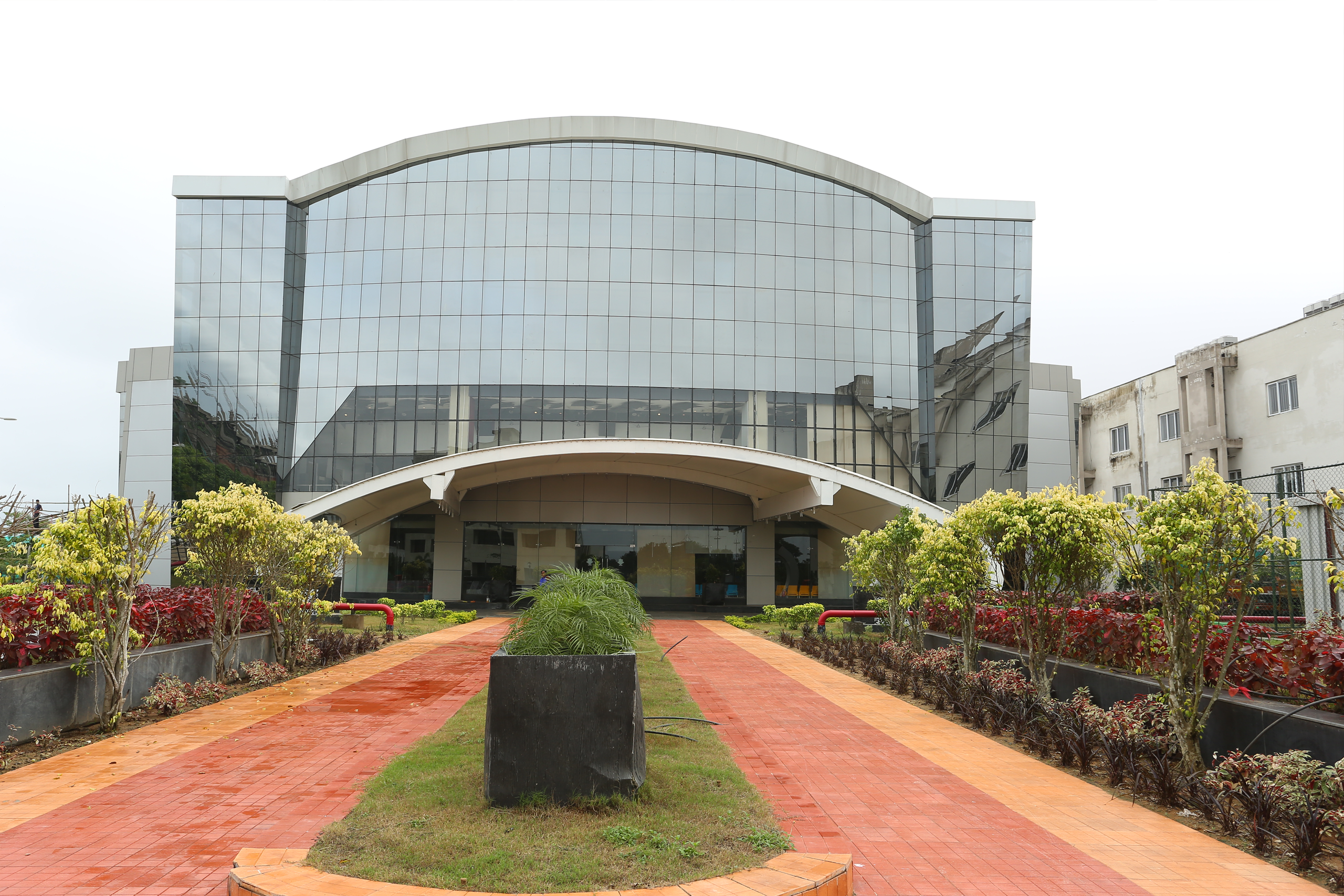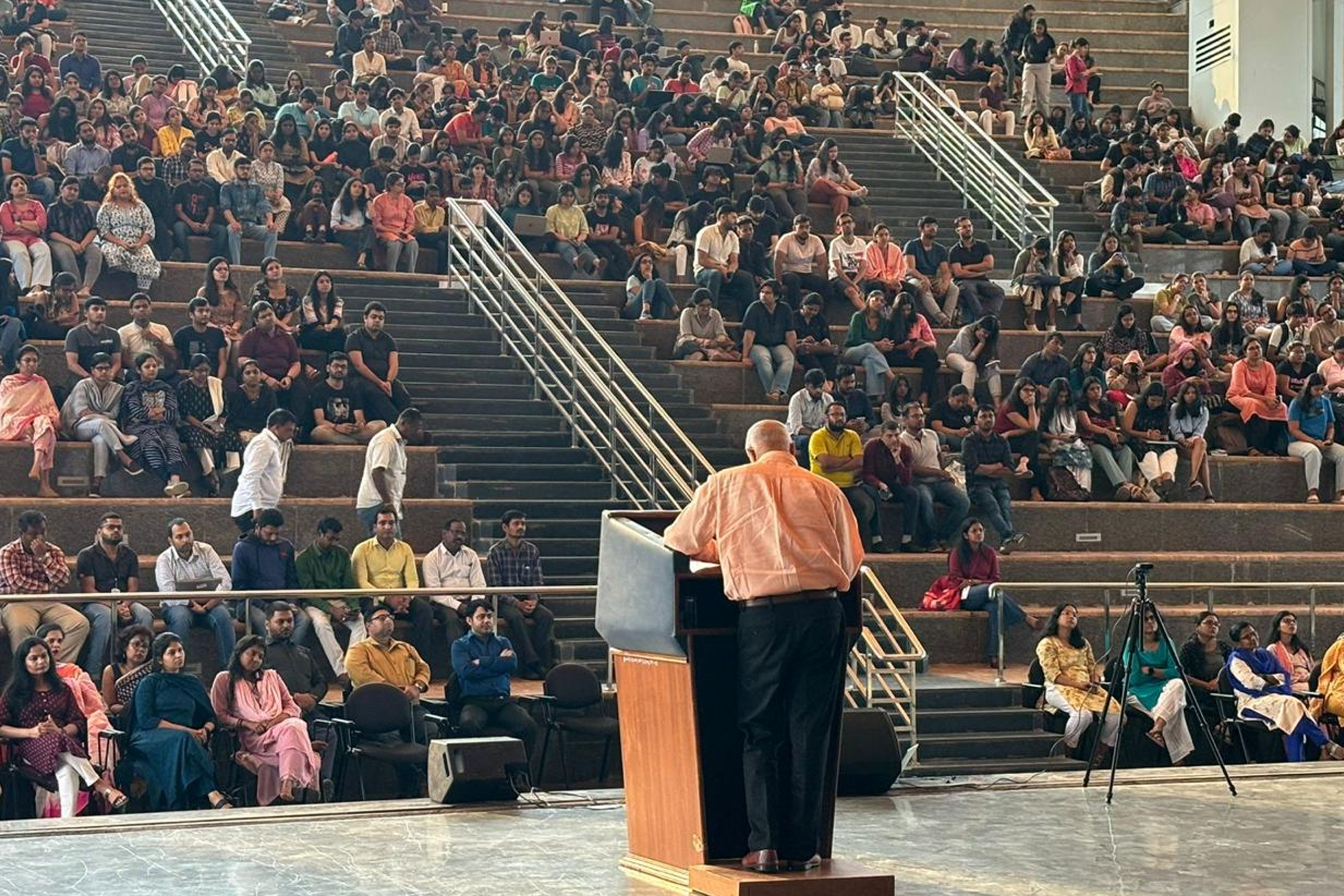“CLS Panel Discussion – Emerging Trends in Constitutional Economics in India and its Place in The Global Scenario”
Date: 6th February 2022????????????????????????????Venue: Google Meet (Online Platform)
The Panel Discussion conducted on 6th February concluded the 3rd Credit Course organized by the Constitutional Law Society, NLUO. The theme for the discussion was ‘Emerging Trends in Constitutional Economics in India and its Place in the Global Scenario’ and it was the final culmination of the twenty hour long tedious yet fulfilling journey. The aim behind conducting this panel discussion was to bring together the course instructors on a common platform to facilitate an intersectional analysis and diversified understanding of the various tenets of constitutional economics. The discussion was made open to the NLUO fraternity, and it witnessed an enthusiastic participation from the participants of the course along with interested participants from the student body of NLUO. The panel for the day comprised of Prof. Mukul Asher, Dr. KP Krishnan and Mr. Lalit Panda, all of whom are renowned luminaires in the field of economics and constitutional law. The session was moderated by Ms. Rishika Khare, Assistant Professor of Law at NLUO.
The Panel Discussion commenced with tracing the history of CLS at NLUO and the activities it has conducted. The audience was then introduced to the panel after which, the microphone was handed to the course instructors to steer the discussion. The format of the discussion was structured in a way that each course instructor had fifteen minutes to put forward their valuable insights on the specific area of constitutional economics after which the floor would be made open for questions. The discussion focused on a multitude of areas and themes revolving around strengthening the accountability of State Regulated Authorities (SRA), the overarching need for a market understanding in order to bring balance between constitutional and economics law and the need for initiatives to organize and conduct an empirical study of the initiatives of the Supreme Court in recent times and its consequent repercussions they hold for economic growth and development of India. Dr. Krishnan comprehensively covered the scope of market regulations and the transformation brought about in the economy of the country post the 1991 liberalization reforms. The discussion also touched upon the very idea of a regulator or SRA by engaging with examples of Securities and Exchange Board of India etc.?The discussion advanced further to engage with ideas of instituting structural reforms by analyzing Supreme Court activities and correlating them to the economic standards and implications. Mr. Panda stepped in at this juncture to focus the attention of the discussion towards governmental accountability. He emphasized on the role of the government’s actions in creating ambiguity especially in recent initiatives like the vaccination policy between the different strata’s of the society. This was specifically in context of allowing access to vaccine doses which constitutes violation of constitutional principles and the economic ramifications of the same. After the conclusion of these detailed remarks by the experts, the floor was made open to questions.
The participants picked up on the nuances of the constitutional provisions and the underlying fallacies of the economic policies. One of the questions sought to understand the possible changes which could be brought about in administrative law in order to better the transparency and accountability in the conduct of the SRA’s. Prof. Asher suggested reforms on the lines of separation of powers and demanding more accountability from these institutions which was echoed by Dr. Krishnan. Dr. Krishnan took the discussion one step ahead by delving into the provisions of the Constitution which enshrine the concept of rule of law. Furthermore, he shed light on Article 53(3) of Constitution which enables conferment of functions on authorities however the immediate fallacy being that neither “functions” nor “authorities” has been defined.
The participants also brought in the contemporary aspect of COVID-19 pandemic and the effect that it has had on constitutional economic balance. This steered the discussion in the direction of the inadequacies which were highlighted in regulations and the increasing economic failures which were witnessed in the country in light of the rising economic pressure. Mr. Panda elaborated upon the various factors like the demand supply, difficulties in implementing regulations etc. In continuation of the context of the Pandemic induced problems, the panel also addressed the economic consequence of not including refugees in the vaccination policy for the third phase in India, specifically when dealing with ideas of market accessibility. This in the context of the deposition that was made by the SC in Re: Distribution of Essential Supplies and Services During Pandemic regarding Central and State government not showing any clarification between citizen, non-citizen or refugees in the vaccination policy. The panel very briefly also touched upon ideas about a balanced economic planning being taken from Israel that continues to face socio-ethnic diversity among its subjects after its creation as a sovereign entity.
Dr, Krishnan had spoken at length about the imperative need to institute social security covers and for their being socio economic safeguards which was a topic which seemed to have garnered interest amongst the participants. Specifically, the participants wanted to enquire more upon the gig economies like Uber, ola, Zomato delivery etc, which are not currently being regulated by any State Regulation Authority. Preliminary data suggested that providing a social security cover to people employed in this sector would negatively impact the costs associated with the overall business and make the entire business unsustainable. Given the undeniable need for social securities cover, the incorporation of this within these economies and its suitability was analysed and weighed by the panel. The intuitive interjections brought the discussion to its end.
The day concluded with a vote of thanks which was rendered by the Hon’ble registrar of NLUO, Prof. Yogesh Pratap Singh who was extremely encouraging towards the initiative taken up by CLS of conducting a course on such a nascent and novel field. He expressed his heartfelt gratitude towards the course instructors for taking time out from their busy schedules to conduct these classes. The Panel Discussion concluded the credit course on a high note.





